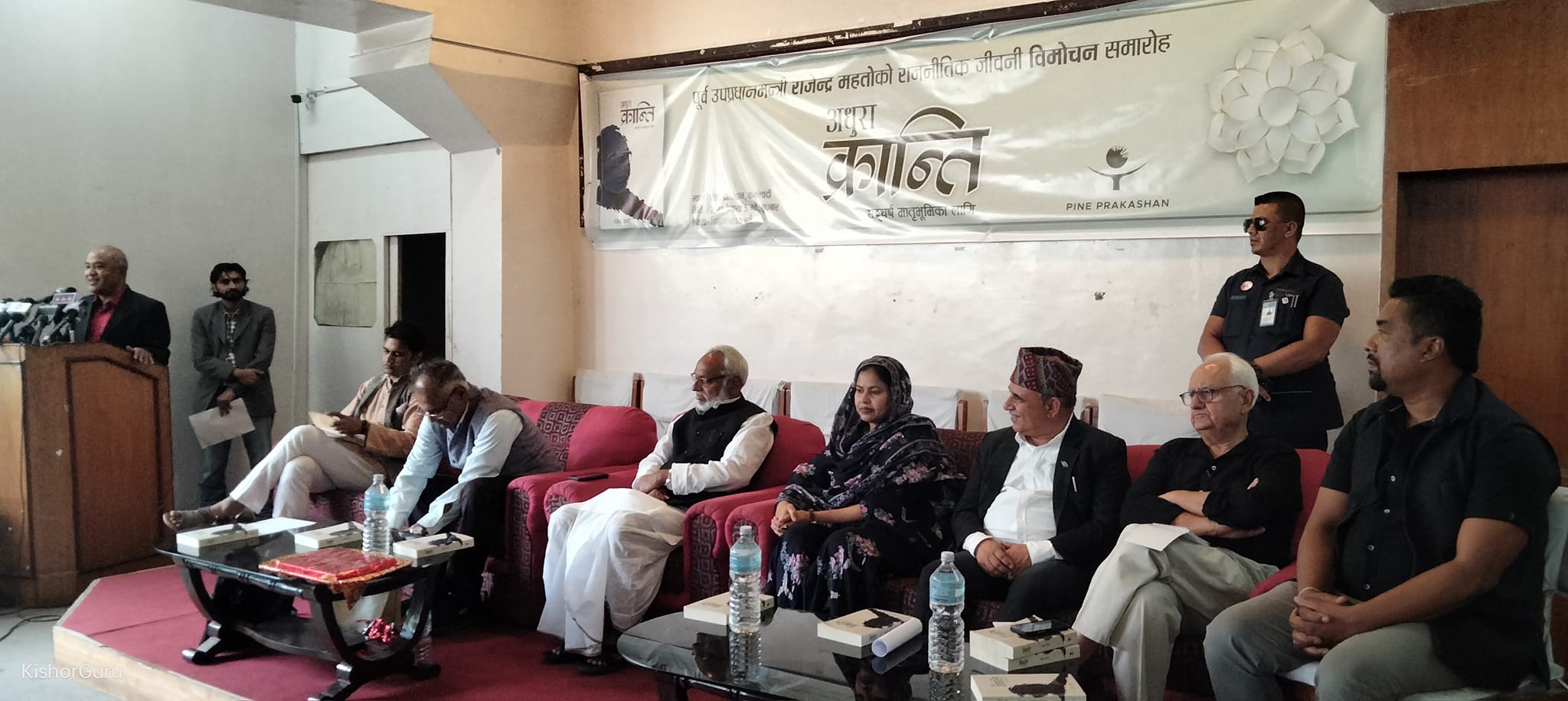

Rastriya Mukti Kranti Campaign coordinator and former Deputy Prime Minister Rajendra Mahato’s book ‘Adhura Kranti’ (Incomplete Revolution) has been launched kathmandu yesterday.
The 381-page book was jointly released by leader Mahato and analyst CK Lal among others. Published by Fine Publication, the book is priced at Rs 770.
It contains articles written on various titles such as ‘Mato ra Bato ko Pahichan’ (Identity of Soil and Road), ‘Bhasik Sangharsha’ (Linguistic Struggle), ‘Udgam ra Upekshya’ (Origin and Neglect), ‘Sangat’ (Company) and ‘Bibhedhko Antyahin Duschakra’ (Endless vicious cycle of discrmination’ among others.
These articles illustrate various aspects of Madhesh movement as well as façade and facets of politician Mahato. Mahato has attempted to give the voices of rebellion in Madhesh a platform through his book.
On the occasion, Mahato shared that it took him seven years to pen the book which encompassed the experiences, viewpoint and understanding of oppressed people besides offering a glimpse of his political life.
Claiming that none of the revolutions and struggles waged so far in the country had served justice to the oppressed people, the politician-turned-writer expressed his confidence that the book would be useful in completing those incomplete revolutions.
According to him, the State affairs were being run by exclusive thinking and vision. He, thus, called to take into consideration all ethnicities, class and communities in running the State affairs.
Similarly, analyst CK Lal commended that the book had viewed Nepal’s around 65-year of Nepal’s political situation from Madhesh’s viewpoint and chronicled the Madhesh movement.
He, however, commented that the book could not cite other Madheshi leaders, who played their part to advance the causes of the Madhesh.
Likewise, Prof Dr Bal Krishna Mabuhang appreciated that the book was worth a read for, he described, it shed light on the political struggles in Madhes and spoke volumes for the sorrow of Madheshi people.
Senior journalist Kanakmani Dixit mentioned that the book written by the leader who struggled for the emancipation of the Madheshi people stood a witness of the modern political history.
Human right activist Mohana Ansari viewed that the book stood testimony to the fact that revolution for ideological and social justice were still incomplete in Nepal.
Former ambassador Mahesh Dahal opined that the book would be useful in understanding overall problems of Madhesh.
Activist Suman Sayami and Buddha Tshering Moktan expressed that the book would inspire people to give completion to incomplete revolution of Madhesh.